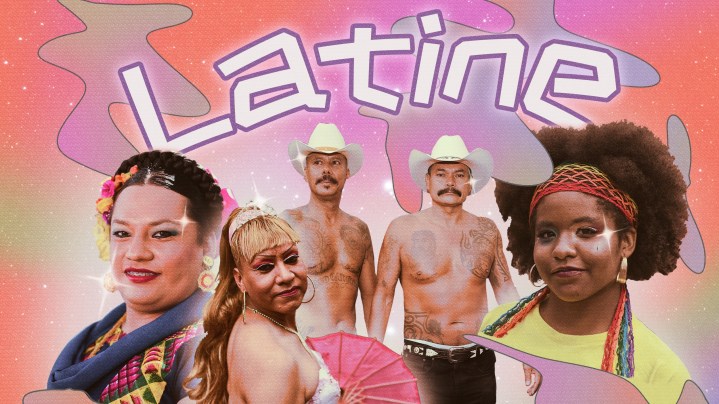This Pride, It’s Time to Honor the Use of “Latine”

Art by Stephany Torres
Language is a reflection of the world around us. And as we create a more accepting world, we need to use words that highlight that evolution in our communities. I am talking, of course, about the often controversial but more accepting term “Latine.”
To better understand why the use of Latine is so important, we need to talk about language. Because in truth, language is ever-changing and evolving.
For example, looking back over the last couple of years, we can see how quickly language can evolve. The Covid pandemic created new words and phrases like “super-spreader” and “vaccine passport.” Tech has given us other words to discuss removing someone from a social platform (deplatform) and “digital nomad.” These words were only recently added to the Miriam-Webster Dictionary as their popularity grew and we changed our language to reflect the truth of the world we live in now. The same goes for Latine, which will most likely follow in the footsteps of “Latinx” and be added to the dictionary.
It’s important to acknowledge that changes in language take time and even those of us in our communities can dismiss it at first glance.

The first time I heard “Latinx,” I admit that I dismissed it as a social trend, especially with the visceral and hateful reaction from then Latino/a people on social media. It didn’t seem like something that would stick. But I slowly saw more and more media outlets and organizations start to embrace the gender-neutral term. In real-time, I watched language evolve because of a group of people demanding inclusion and a better way of acknowledging all facets of our communities.
In turn, it made me think about my own identity.
Coming out with your gender identity, sexual orientation, and gender expression is a long, personal, and often difficult process. LGBTQ+ people spend years hiding their identity to stay safe and fit in so that they aren’t subjected to violence and hate. Deconstructing that false identity to fully embrace your truth takes time and courage. And it’s often revolutionary in a world where your existence is pressured to fit into something palatable.

Personally, I had identified as a gay, cis-male for the longest time because it was the language best afforded to me at the time. Despite moments in my life, I was Latino when a masculine identity didn’t fully encompass my full being. I had always felt that, while masculine-presenting, there were things in my identity that didn’t fully align with just masculine. There was another part of my identity I wasn’t able to express because the language wasn’t there for me.
The movement to embrace nonbinary and gender-neutral language and terminology afforded me a chance to finally identify a missing piece in who I was and what I felt. And when Latine, a form of Latinx that is more easily pronounceable in Spanish than Latinx, came around, things just got easier to connect to the most real version of myself. And if it could do this for me, imagine what it could do for others in our communities?
“Latine” is a term that identifies me better than “Latino” ever would and it’s my preferred term when talking about the greater Latine communities. And in finding that within myself, and seeing the visceral reaction from our communities at the evolution of the language used to identify us, I found myself wondering why would we only accept a masculine word to identify communities that are extremely diverse? How does holding on to an older understanding of our world benefit us now or in the future?

Speaking in terms to better identify communities or a population without adding unnecessary gender to the term is the present world we live in and our future. In fact, younger generations have embraced these terms already because it is the world they are growing up in. Who can forget the young girl who educated her teacher about the nonbinary pronouns elles, todes, and les in Spanish? These simple and accepting terms might seem foreign, but that’s how language works.
There’s no doubt in my mind that Latine, and Latinx, will continue to be a hot-button issue in our communities. People have very strong feelings about the term because they don’t want their language to change and some even feel like they themselves are being erased if “Latine” becomes the norm. So much so, that there have been intense debates on social media fighting to preserve “Latino” as the umbrella term for our communities without taking into account that it doesn’t encompass the identities of all of those in our communities.
This Pride Month, embrace the evolution of our language. If you don’t identify with the term, that’s ok. But what you can’t deny is other people’s use of the term or invalidate them when they use it. Because as the world moves toward a more inclusive consciousness, it is important that all people feel accepted and welcomed. And whether you realize it or not, someone you know and love likely identifies as Latine. And wouldn’t you want them to feel as welcome in our communities as you have always felt?

Embrace love.
Embrace understanding.
And embrace the use of “Latine.”
